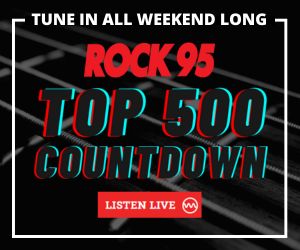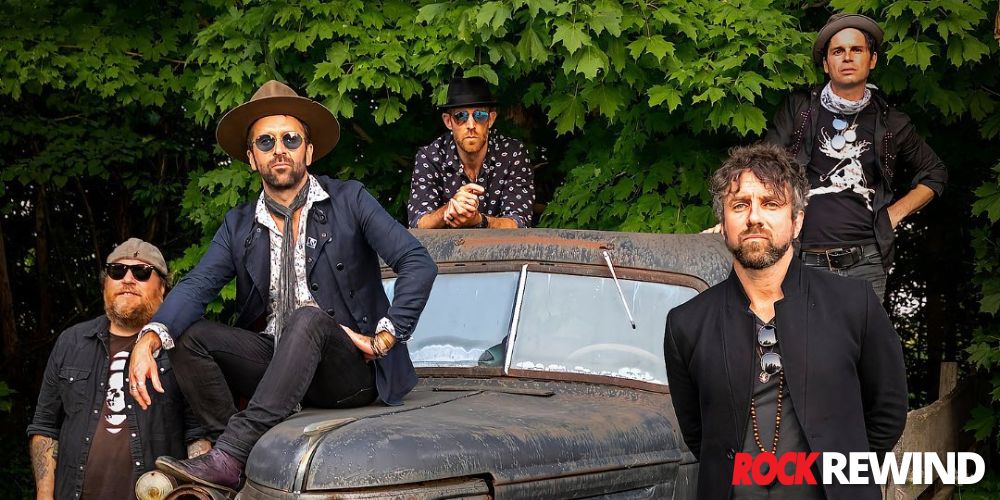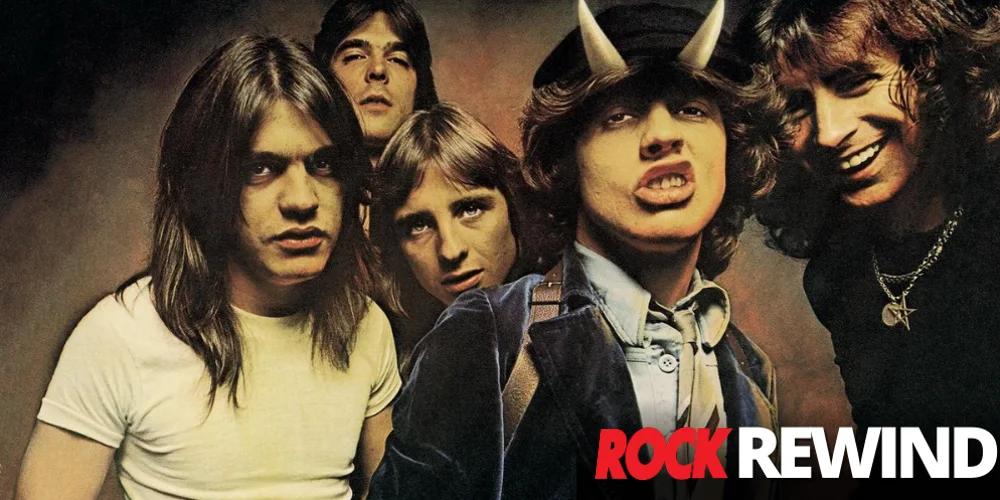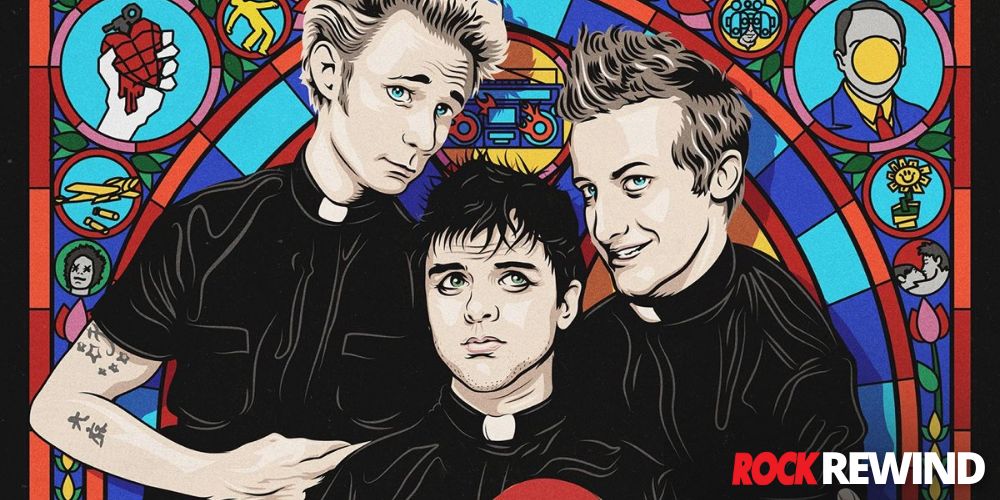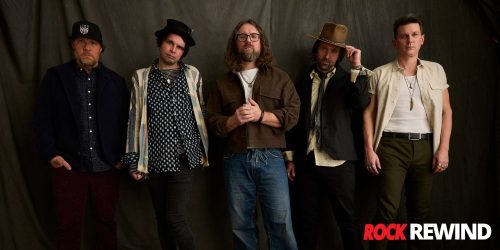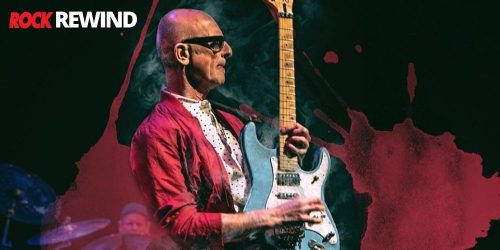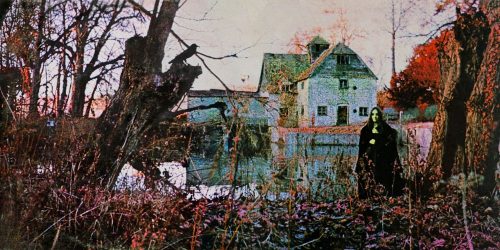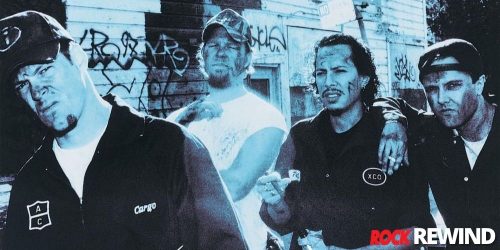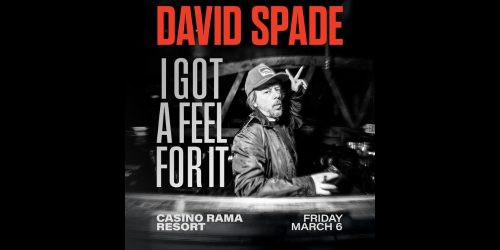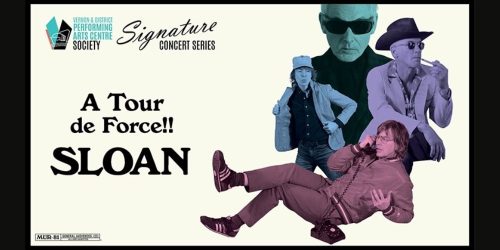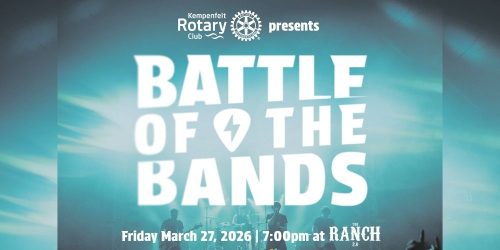Rock Rewind: How Nickelback Became One Of The Biggest Names In Hard Rock
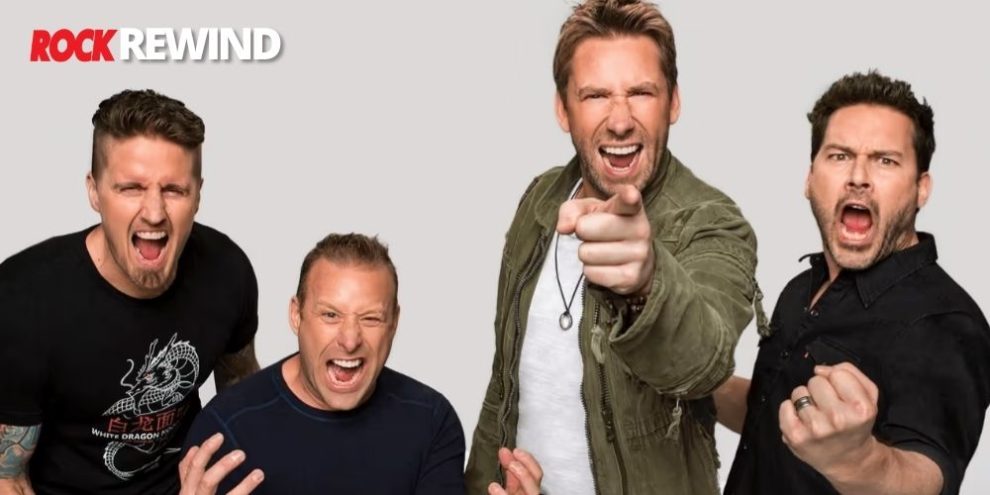
This Rock 95 content is brought to you by Boots and Hearts
Formed in 1995, Nickelback is one of the most commercially successful Canadian rock bands, building an incredibly successful career for themselves through their determination, dedication, and drive.
They have also become one of the most polarizing bands in rock history. Everyone has an opinion about them ... so much so that they have become a constant mainstay in pop culture. From endless memes to #1 songs and multiple awards, it's clear they have made an impact on life over the past few decades.
Regardless of how you feel, one thing is certain. Nickelback has had an impressive career and made a name for themselves worldwide.
Let’s take a deeper dive into the band and how they got where they are today …
How Nickelback Got Their Name
When the band started out, they called themselves Village Idiot.
"Our small town [Hanna, Alberta] was almost village sized, so I thought it was appropriate,” Ryan shares. He continues, “We played a lot of Tragically Hip.” Bandmates go on to share that Village Idiot covered a lot of Canadian college circuit bands, like Watchman and The Odds.
Village Idiot was made up of Mike and Chad Kroeger, their cousin Brandon Kroeger and Ryan Peake. Eventually, they changed their name to Nickelback. Mike thought of the name while he was working at Starbucks, where he would always say, “Here’s your nickel back,” when giving change to customers.
Drummer After Drummer
The Nickelback lineup has been the same since 2005:
- Chad Kroeger on guitar and lead vocals
- Ryan Peake on keyboard
- Mike Kroeger on bass
- Daniel Adair on drums
But over the first 10 years, the band went through multiple drummers.
In 1997, following the release of the band’s first album, Brandon Kroeger left the band to spend more time with his family and friends.
“[Brandon] just wanted to do the family thing. He didn't want to pursue the whole rock and roll dream and then we knew the replacement was just a replacement. He wasn't going to be blowing anybody's mind. But he was a good drummer and he was really dedicated to us, a really great guy, but you can't win the super bowl if you don't stack your team, so we had to let him go and we found Ryan Vikedal. Its not like we found him …”
— Chad Kroeger
Mitch Guidon replaced Brandon on drums but a year later, Guidon left the band. He was never on any albums but toured with the band multiple times.
Originally, many believed that Guidon left to start working at a car company. While he did end up resuming his career as an automotive technician, Chad explained he had other reasons for leaving. Specifically, the band convinced him to leave because he wasn’t “meant for the road” and couldn’t handle the cold weather. That summer, Ryan Vikedal joined on drums.
Vikedal played with Nickelback from 1998 to 2004. While the official release did not give a reason for his departure, Vikedal claimed the band asked him to leave.
In an interview, he says, the band said his heart wasn’t in it and that he wasn’t quite the rock drummer they were looking for.
"I had to direct the meeting because they kept blabbing about my playing and that I wasn't happy with the band. It was just a bunch of lame excuses because no one could tell me the deal. I had to tell them to cut the sh*t and get to the point. And even then they couldn't bring themselves to tell me I was done."
— Ryan Vikedal
3 Doors Down drummer, Daniel Adair replaced Vikedal and the current Nickelback lineup came to be.
Recording Their First EP
In 1995 the band needed studio time to record their first demo. To help pay for the studio time, Chad asked his stepdad for a $4,000 loan. In an interview with Loudwire, Chad recalls the sales pitch:
“I pitched him in my telephone voice. And I said that we were gonna go out. We already had a studio, everything was quoted … If he lent us $4,000, in six months we would pay him $5,000. And he said, 'That's a pretty good investment. … I'll lend you the money.'”
The band used half to record their EP, Hesher, and the rest went to buying magic mushrooms. It took the band a long time to pay him back, with Chad sharing that he had to sell “a lot of zoomers.”
The following year, Nickelback self-released Curb, their first studio album and in 1999, the band signed a record deal with EMI and Roadrunner Records.
Ron Burman, from Roadrunner, remembers one of his scouts sending him Curb. Impressed by what he heard, he headed to Vancouver to catch them live. When he got to the venue, it was packed. Burman recalls, "I immediately got the chills! I thought their song "Leader of Men" was a smash hit." When he caught up with them after the show, the band impressed him with their hard work and initiative.
Even still, it was 3 months before Burman could convince his label to approve the band. It would be their first time working with a mainstream rock group.
The following year, Nickelback released The State followed by Silver Side Up a year later.
Nickelback Discography
Since 1995, Nickelback has put out:
2 compilation albums – Three-Sided Coin (2002) and The Best Of Nickelback Volume 1 (2013)
5 video albums – Live At Home (2002), The Videos (2003), Photo Album: The Videos (2005), The Ultimate Video Collection (2007) and Live At Sturgis 2006 (2008)
They’ve also released 10 studio albums …
1. Curb (1996)
Curb was Nickelback’s first full-length album. The band recorded it in British Columbia at Turtle Recording Studios and originally released it solely to the Canadian market via the Foundation Assisting Canadian Talent On Recordings (FACTOR).
Mostly written by Chad, a lot of the album's material dated back as far as 1993. In an interview with antiMusic, he explains that “Curb is raw Nickelback … It’s heavier. It’s a little edgier and on this record, the producer we used was definitely worried about getting us on the radio so he toned it down a lot. You can hear it in songs like ‘Diggin This’ where it kicks into the heavy riff, where I would have been really screaming …”
In early 2002, the band’s previous management company filed a breach of contract. They claimed that Nickelback "wrongfully terminated the contract” and had “failed to pay the management company commissions, disbursements, and various other fees as a result of services rendered".
Nickelback counter-claimed. They argued that the company, Amar Management, “wrongfully retained or took possession of Curb from [Nickelback] in August of 1998.” The claim settled in the band’s favor and Roadrunner remastered and released the album later that year.
2. The State (1998)
The State was the first Nickelback album released by Roadrunner Records and EMI Canada. The following year it would release in Europe.
To record the album, the band borrowed and invested $30,000. The money was easier to borrow thanks to Ryan’s credit score, which he built up while running cattle in their hometown.
When they had completed the album, the band released it independently. Though the band later reissued it on EMI Canada – once with a modified version of the original cover and then again with artwork of a young boy in jail for the American, European, and Australian releases.
To promote the album, the band toured with bands like 3 Doors Down, Creed, and Stone Temple Pilots until early 2001.
The album had 4 singles, the last two of which made it to the top 10.
- “Old Enough”
- “Worthy To Say”
- “Leader Of Men”
- “Breathe”
The album reached #3 on the Billboard Top Heatseekers chart in 2000 and was also the first Nickelback album to go Gold.
3. Silver Side Up (2001)
For their 3rd studio album, Nickelback stuck with their heavy rock sound and teamed up with Rick Parashar for production. Much of the album was written before The State was recorded, so some of the songs had been previously included in live performances. This meant that many fans already knew the tunes.
Upon its release, the album moved to #2 on the Billboard 200 and #1 on the Canadian charts. This surpassed The State, which peaked at #130 in the US.
The lead single, “How You Remind Me,” topped the Hot 100, Mainstream, Modern Rock, and Pop charts, becoming the Billboard 100 #1 single of the year. Their follow-up singles, “Too Bad” and “Never Again,” both reached #1 on Mainstream Rock charts. The success of the album even helped bring The State back onto the Billboard charts.
Following the release of the album, the band went on tour, Chad worked on the Spider-Man theme song with Josey Scott and the band released their first DVD.
4. The Long Road (2003)
The Long Road was the first album produced by Joey Moi and the last with Ryan Vikedal on drums. It produced 5 singles. “Someday”, the lead single, was #1 in Canada and #7 in the US.
When talking to Billboard about the album, Chad explained, “There’s no central theme here … Silver Side Up was very personal. This one doesn’t draw on the experiences of my life; it could be anybody’s story.”
The album debuted at #6 in the US, ranked #156 on Albums Of The Decade, and went 3x Platinum in 2005.
5. All The Right Reasons (2005)
Daniel Adair joined the band just after New Year’s Day 2005. Soon after, the group headed to the studio and recorded their 5th studio album, which released in October of the same year.
All The Right Reasons peaked at #1 on Billboard 200 and resulted in 5 singles, all of which made the top 20 on the Hot 100. They also made Nickelback the first band in Nielsen BDS history to have 5 songs on contemporary hit radio charts.
Their lead single, “Photograph,” made it to the top 100.
The album went #1 in Canada and to date, is Nickelback’s best-selling album with over 11 million copies sold worldwide.
Following the album's release, the band toured the globe and opened for Bon Jovi on his Have A Nice Day Tour in Europe.
6. Dark Horse (2008)
In 2006, Nickelback won Best Pop/Rock Album at the American Music Awards. Chad recalls being surprised that night. "We just kinda showed up because we were supposed to give one of these away tonight." He thought the Red Hot Chilli Peppers would win.
The next year, they took some time off before recording Dark Horse
“If Today Was Your Last Day” was lined up as the lead single for the album. But Roadrunner changed plans and released “Gotta Be Somebody,” which became the 5th and last #1 hit on the Adult Top 40 to date.
Dark Horse, produced by Mutt Lange, came out in November 2008. One month later, Dark Horse has certified platinum and all 8 singles, released throughout 2008 and 2009, were hits. It also became the top-selling rock and metal album of the year.
In July 2008, while working on Dark Horse, Nickelback signed a contract for 3 touring and album cycles with Live Nation. The contract also included an option for a fourth cycle. This led to Live Nation producing Nickelback’s support tour for Dark Horse.
They toured North America, the UK, New Zealand, and Australia with opening bands including Seether, Saving Abel, Black Stone Cherry, Hinder, Papa Roach, Sick Puppies, Buckcherry, and Three Days Grace.
Selling over 1.6 million tickets, the tour was incredibly successful.
While the band won 3 Junos that year, they received a very mixed critical reception.
7. Here And Now (2011)
In February 2010, Nickelback played “Burn It To The Ground” at the 2010 Winter Olympics closing ceremony and later that year, they completed their Dark Horse Tour
Almost a year after that, in 2011, they released Here And Now with “Bottoms Up” and “When We Stand Together.” The album debuted at #2 on Billboard 200 just behind Michael Buble’s Christmas.
To promote the album, the band played at the NFL Thanksgiving Day game and at the 99th Crey Cup in November 2011.
8. No Fixed Address (2014)
No Fixed Address moved away from the sound Nickelback had become known for by introducing more dance-pop and electronic sounds. It was also their first and last release on Republic Records after leaving Roadrunner the year before.
“Edge Of A Revolution” is the lead rock single from No Fixed Address. Being a political song, it was a departure from the band’s norm. According to Chad, it was inspired by protests in Ferguson, Missouri after a police officer killed Michael Brown, an unarmed teenager.
The lead pop song was “What Are You Waiting For?”
A tour of the same name followed the release of No Fixed Address. The tour took place in North America, Europe, and Australia. There was supposed to be a second leg of the North American tour but it was canceled. Chad needed surgery to remove a cyst in his vocal box. The band postponed the European leg of the tour until 2016.
9. Feed The Machine (2017)
In 2017, Nickelback signed on with BMG Rights Management and released their 9th studio album, Feed The Machine. The album debuted at #5 on the Billboard 200.
In an interview, Chad shares, "This album is definitely heavier, as a whole, than a lot of our previous records … We've gone back to some pretty crunchy roots, and we're happy about that. I mean, we're always stretching off in different directions and trying different things, but we definitely went with more of an aggressive sound on this record."
The band followed up the release with a 44-city tour in North America. Daughtry, Shamans Harvest, and Cheap Trick joined as supporting acts.
10. Get Rollin’ (2022)
In early 2019, Nickelback talked about recording a new album but said there was no rush to complete it. It wasn’t until 2021 that any concrete news came up.
During an interview, Mike shared, “Music is being composed and recorded up in Canada. We were out there, and something came up and our producer had to take some time off. So I took that opportunity to return home to Los Angeles with family and spend a little time at home but I'll be headed back up there in a couple of weeks to pick it up again."
Still, there was no set timeline for the album’s release.
“We’ve been managing ourselves for about a year,” Mike explained. “We’re doing it on our schedule, at our own pace, and it’ll be done when it’s done. ‘Cause we’ve blown up deadlines in the past lots of times. Because we feel that you can make a good record and be late, but you can’t, or you shouldn’t, make a shitty record to be on time. So we won’t be pressed for time.”
In 2022, the band started posting teasers of their new music on social with the lead single, “San Quentin,” posted online in August.
The Story Behind San Quentin
Chad shared the inspiration behind the song. "I met the San Quentin prison warden at a party. And I couldn't believe how young he was. I was, like, 'There's just no way that you're the warden of San Quentin,' and everyone was, like, 'Yup. He is.' Guy Fieri's a buddy of mine, and I was at his birthday party a few years back. And the entire time we were talking, I'm speaking to this guy, but in my head all I could think about was, 'I'm gonna write a song called 'San Quentin'. That's it.' And I stuck it in my notes in my phone. And then once the riff was down, I think I screamed out this line, 'Can somebody please keep me the hell out of San Quentin?' And we just took it from there."
The album came out on November 18. It peaked at #4 in Canada, #30 on the Billboard 200, and #3 on the US Independent album charts. In UK and Switzerland, it charted #1.
Nickelback’s work has received reviews ranging from excellent to disappointing. Regardless of where you sit, you can’t deny that this Canadian rock group has put in a lot of time and work to get where they are. If they hadn’t, they wouldn’t have been able to make the impact they have on the rock music scene.
“We’re obviously doing something right if someone hates us that much.”
— Mike Kroeger
Nickelback will be playing their only Ontario date at Boot and Hearts Music Festival this summer.
Read More Rock Rewinds
Snag Our Newsletter
Hit that button like you’re pressing play on your favourite track. get exclusive content, stories, and news.

